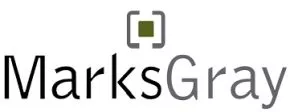- within Intellectual Property topic(s)
- in United States
- within Intellectual Property topic(s)
- in United States
- with readers working within the Basic Industries industries
- within Intellectual Property, Media, Telecoms, IT and Entertainment topic(s)
Earlier in 2025, furniture and home-goods retailer Arhaus filed a lawsuit against RH. The core allegation? A former Arhaus executive, Lisa Chi, improperly transferred confidential and proprietary information (i.e., trade secrets) from Arhaus to RH when she changed jobs.
Specifically, Arhaus claims that Chi forwarded internal documents, including sourcing and financial data, to her personal email before leaving. One key file was a draft of Arhaus's Fall 2025 catalog, a document Arhaus says is among its "closely-guarded trade secrets."
After Chi joined RH, Arhaus alleges that RH's product offerings and marketing began to closely resemble Arhaus's, suggesting misuse of that information. Because of this, Arhaus is asking the court to force RH to delete the material, block its use, and pay damages.
So, what are we looking at with this case?
What Are the Key IP Law Concepts at Play Here?
There are a few:
Trade secrets. Information not publicly known, giving a competitive advantage, and protected through reasonable secrecy measures. Examples can include things like product designs, marketing strategies, or sourcing costs.
Confidentiality agreements (NDAs). Contracts obligating employees not to disclose or use sensitive company information, even after leaving a job.
Misappropriation. The unauthorized acquisition, use, or disclosure of trade secrets. Courts can respond with injunctions, damages, or both.
How Will the Court Decide Whether or Not Trade Secrets Were Really Misappropriated?
There are a number of factors that could tip this case in one direction or another. How much of a role any of them end up playing will depend on the specifics of this unique situation.
What are they?
Protection Measures
Did Arhaus clearly label and safeguard its sensitive data with passwords, limited access, and NDAs? Courts weigh whether reasonable steps were taken to preserve secrecy.
Evidence Trail
Emails, file logs, or catalog comparisons could strongly support Arhaus's claims... or, vice versa, RH's defense.
Independent Development
RH may argue that it created similar designs independently, which would weaken Arhaus's case. However, it would likely need to show clear evidence of this.
Employee Behavior
Chi's forwarding of documents could hurt RH, but evidence RH avoided using them could soften liability.
Proof of Damages Proof
Even if misappropriation is found, weak evidence of financial harm to Arhaus could limit any award.
Business Pressures
Reputational risk or shareholder concerns could encourage settlement over a public courtroom fight. In fact, this may be one of the most likely outcomes if both businesses are more inclined to resolve this issue as expeditiously as possible.
Why Is This Case Interesting from an IP Law Perspective?
This dispute highlights that trade secrets are not limited to high-tech formulas or the recipe for KFC's chicken. They can be catalogs, sourcing strategies, or marketing plans, as well.
In order to protect this proprietary information, businesses should:
- Use clear NDAs, limit access to sensitive info, and enforce exit protocols.
- Train employees about their obligations and monitor for unusual data transfers.
- For employees changing jobs, avoid taking documents or proprietary knowledge (when in doubt, ask legal counsel!).
Protecting and respecting confidential information is essential for any business. Whether Arhaus prevails or RH defends successfully, the case underscores that when workers move between competitors, it can carry serious IP risk. Want to learn more about the protocols you can put in place to avoid trade secret problems?
The content of this article is intended to provide a general guide to the subject matter. Specialist advice should be sought about your specific circumstances.


